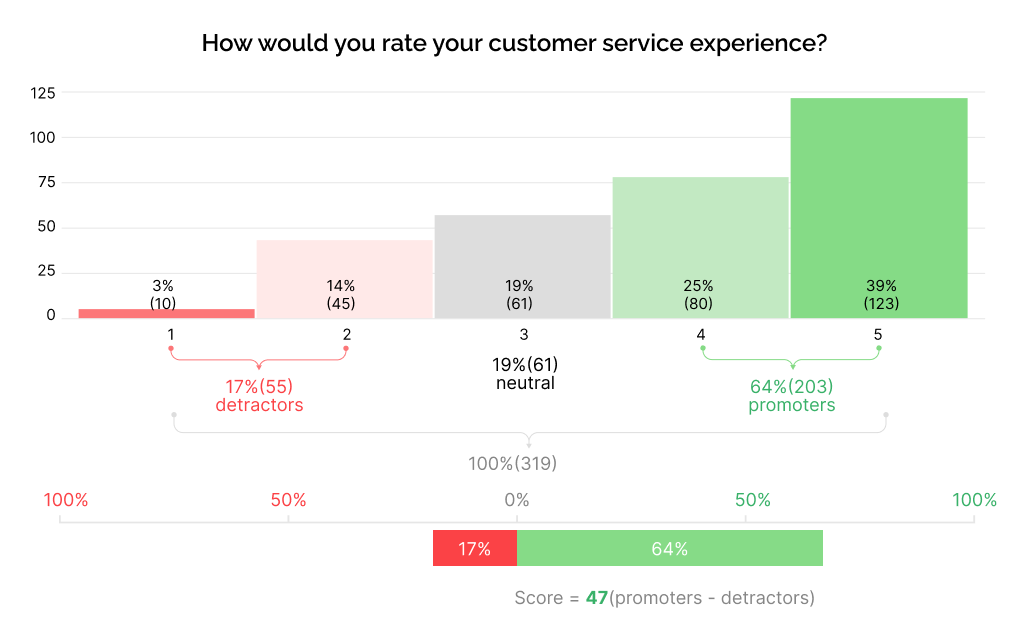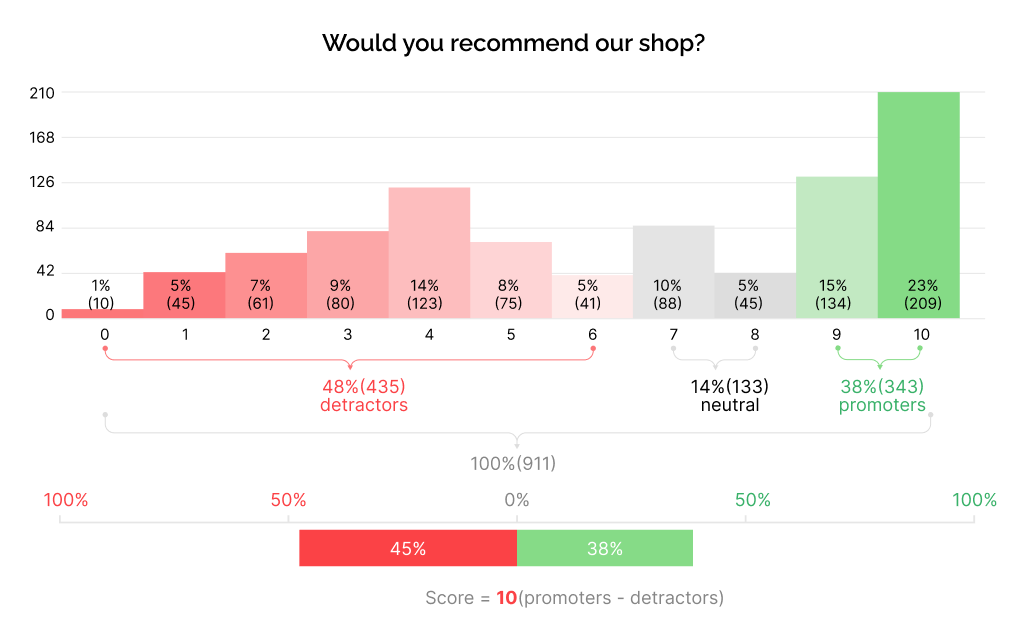4 min read
Using Moments of Delight in Your Customer Journey to Boost Loyalty
Team Ambassador Jan 24, 2025 12:00:00 AM

What is a ‘Moment of Delight’?
A moment of delight in customer service refers to an instance where a moment in the customer journey or an experience with a brand exceeds their expectations in a positive and memorable way. This concept is rooted in the idea that providing customers with unexpectedly great service or experiences can significantly enhance their perception of the brand, leading to increased engagement and loyalty.
How Moments of Delight Influence Your Business
A moment of delight in customer experience can significantly influence a business by creating lasting positive impressions. These moments, where customer expectations are exceeded, often lead to higher levels of customer loyalty and advocacy. Satisfied customers are more likely to return, make repeat purchases, and recommend the business to others, effectively becoming brand ambassadors. This word-of-mouth promotion is invaluable, as it tends to be more trusted and can lead to new customer acquisition without additional marketing costs. Moreover, delighted customers often provide useful feedback and insights, contributing to the continuous improvement of products or services. In essence, consistently creating moments of delight can build a loyal customer base, enhance brand reputation, and drive business growth.
Personalization: Tailoring the customer experience to individual preferences and history can create a moment of delight. Personalized recommendations, greetings, and services show customers that a company values and understands them, fostering a deeper connection.Surprise and Exceed Expectations: Going beyond what is expected, such as offering an unexpected upgrade, discount, or a small gift, can delight customers. These surprises create positive emotional connections and memorable experiences.
Exceptional Customer Service: Providing prompt, empathetic, and effective solutions to problems can turn a negative situation into a moment of delight. Resolving issues swiftly and exceeding expectations in the process can transform an unsatisfied customer into a loyal one.
Creating Emotional Connections: Engaging with customers on a more personal level, such as celebrating their milestones (birthdays, anniversaries) or empathizing during tough times, can create emotional bonds and moments of delight.
Feedback and Improvement: Actively seeking and promptly acting on customer feedback demonstrates that a company values its customers’ opinions. Implementing changes based on this feedback can lead to delightful surprises for customers.
Consistency in Quality and Service: Consistently delivering high-quality products and services ensures customers have a reliably positive experience, creating a foundation for moments of delight.
Engaging Through Multiple Channels: Reaching out to customers through their preferred communication channels (social media, email, phone) with tailored content or offers can create delightful interactions.
Unique and Creative Experiences: Offering unique experiences that customers can’t find elsewhere can create moments of delight. This could be through innovative products, creative marketing campaigns, or unique brand interactions.
Community Building: Creating a sense of community among customers through events, forums, or social media groups can lead to delightful shared experiences and a stronger emotional connection to the brand.
Empowering Employees: Empowering front-line employees to go the extra mile and make decisions that can create moments of delight for customers is crucial. When employees feel confident and authorized to create positive experiences, they are more likely to do so.
By focusing on these moments of delight, companies can turn ordinary interactions into extraordinary ones, fostering greater customer engagement and loyalty. This approach can lead to positive word-of-mouth, repeat business, and a stronger brand reputation. But how do you even know what your customers’ moments of delight are?
Using Data to Find Your Moments of Delight
When analyzing data related to customer satisfaction, several types of charts and graphs can be particularly useful in visualizing and identifying key data points. The most commonly used, are the Customer Satisfaction Score (CSAT) and Net Promoter Score (NPS). CSAT and NPS are both metrics used to identify your companies’ promoters and detractors, but they have different focuses and methodologies:
CSAT measures immediate customer satisfaction with a product, service, or experience. It’s typically asked as a single question about a specific interaction or purchase, with answers on a scale (like 1-5 or 1-10).
CSAT is good for getting quick feedback on specific aspects of the customer experience:

An example of CSAT results in a table
NPS, on the other hand, measures long-term customer loyalty and the likelihood of customers recommending a company to others. It asks customers how likely they are to recommend the company on a scale of 0-10. Respondents are categorized as Promoters, Passives, or Detractors.
NPS is useful for understanding overall customer sentiment towards a brand over a longer period:

An example of NPS results in a table
Testing and identifying the moments of delight in customer interactions involves a combination of careful observation, data analysis, and direct feedback, however. In addition to the CSAT and NPS data, you’ll also want to consider the following methods of earning customer feedback:
Customer Surveys: Regularly collect customer feedback through surveys, focus groups, or direct interviews. Ask specific questions about what aspects of the service or product exceeded their expectations. Look for patterns or recurring themes in the responses.
Social Media Monitoring and Reviews: Monitor social media channels and online reviews for unsolicited feedback. Customers often share their exceptional experiences on these platforms. Look for mentions of specific interactions or features that customers found delightful.
Mystery Shopping and Observation: Employ mystery shoppers or conduct observational studies to witness the customer experience firsthand. This can help identify potential moments of delight that may not be evident through feedback alone.
A/B Testing: Implement A/B testing for various aspects of your service or product. This can help identify which changes or additions lead to higher levels of customer satisfaction and engagement.
Analytics and Data Mining: Use data analytics to track customer behavior and engagement. Consider correlations between certain actions (like a specific marketing campaign or service feature) and increased customer satisfaction or loyalty.
Employee Feedback: Frontline employees often have direct insights into what customers appreciate most. Regularly collect feedback from staff about customer reactions and suggestions.
Customer Journey Mapping: Map out the customer journey to identify all potential touchpoints. Analyze these touchpoints to determine where customers are most likely to experience delight.
Behavioral Metrics: Track behavioral metrics such as repeat purchases, increased usage, or higher engagement on social media following specific interactions. These can indicate moments of delight leading to greater loyalty.
Follow-up on Service Recovery: After resolving a customer complaint or issue, follow up to gauge the customer’s response to the resolution. Often, effective service recovery can turn a negative experience into a moment of delight.
Identifying moments of delight is an ongoing process. It requires continually listening to and engaging with customers, as well as being willing to adapt and innovate based on what you learn. By consistently applying these techniques, businesses can refine their approach to creating and enhancing these moments, leading to increased customer satisfaction and loyalty.